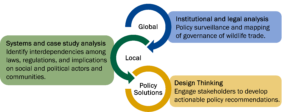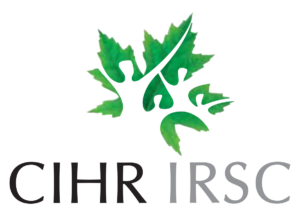Research
Purpose
The purpose of this project is to evaluate the governance gap in stewardship of international wildlife trade supply chains given their implications for food and health security. We aim to analyze the intersection of global biodiversity, environmental, agricultural and public health governance systems to more comprehensively assess the institutionalization of One Health principles. Using insights and methods from complexity science, we leverage local knowledge and expertise to explore new coordinated governance solutions for local food and wildlife.
Research Questions
We answer the following research questions using a solutions-oriented approach with multiple methods and disciplinary lens:
- How can the global health, biodiversity, trade and environmental governance systems be better coordinate to break the causal link between zoonotic diseases and wildlife trade?
- How might changes in the local food and wildlife systems interact with governance systems to impact on livelihoods, cultural practices and food security?
- What are the policy design solutions needed to implement the emergent evidence from the institutional, legal and systems analysis?
Methodological Approach
At the global-level, we conducted an institutional and legal epidemiology analysis that will provide policy surveillance and mapping of international and national governance of the wildlife trade.
At the local-level, a systems analysis was used to identify local contextual interdependencies among laws, regulations, and their implications for the behaviour of social and political actors and communities supplemented by in-depth qualitative case studies. We focused our research on international governance institutions that set guidelines for national stewardship of biodiversity, the environment, agriculture and public health with implications for the regulation of wildlife trade within three case study countries: China, the Philippines and the Democratic Republic of Congo.
Across the project, evidence from the global and local levels was synthesized using a design thinking approach. Evidence briefs and a project narrative was developed to integrate evidence across the project. We are exploring participatory design thinking approaches to engage stakeholders in developing actionable policy recommendations using evidence narratives from the project.

Funders
This project is funded by the Canadian Institutes of Health Research and the Global 1 Health Network.

